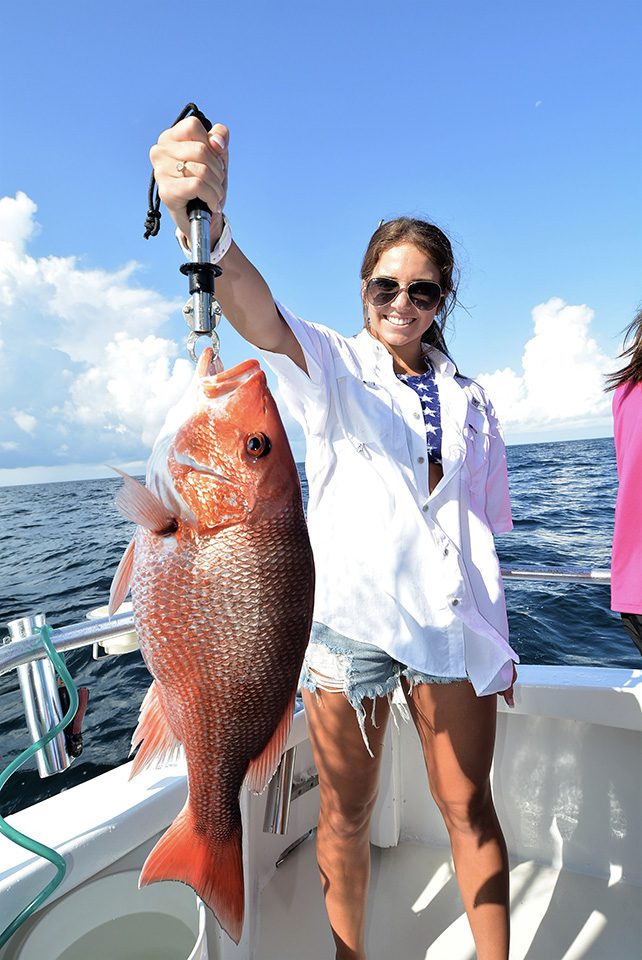CCA Calls for Gulf Secession from Federal Fisheries Management
Following yet another series of federal snafus in data collection for Gulf of Mexico fisheries, Ted Venker, vice-president and conservation director for the Coastal Conservation Association, has called for fisheries management in the Gulf to be turned over to the states.
In a piece published online in Sport Fishing, Venker laid out a solid case for the Gulf states to opt out of the federal data system the way Western states did back in 2002.
“Recreational data problems in the federal system aren’t going away — they’re getting worse,” wrote Venker. “Fortunately, there is a path forward in the Gulf, and we believe it is time to embrace a cohesive state-based management program that utilizes timely, current data and produces information managers can use today. We must get down to the business of properly managing our fisheries rather than wasting time explaining the mistakes of the past.”
Venker’s call comes on the heels of an announcement that $6.6 million in Inflation Reduction Act funding is being applied by the Gulf States Marine Fisheries Commission (GSMFC) to improve the quality and timeliness of recreational fishery dependent data gathering.
“Progress at the commission can’t come too soon as it is becoming apparent that the federal management system is struggling to function due to uncertainty in the federal recreational data,” Venker wrote. “Continued cooperation by the Commission and the Gulf states is critical to provide a viable alternative to the current federal system, which is anchored in decades of questionable data, uncertain conversions and outdated management models. It has become almost impossible for fishery management councils to make timely decisions.”
Without expounding on decades of federal mismanagement in the Gulf, Venker laid out some of the recent issues with the federal management system:
Fishing Effort Survey Errors
Last summer, NOAA Fisheries admitted that the survey used to estimate recreational harvest had flaws causing it to over-estimate recreational harvest of some species by up to 40 percent. Fisheries managers will now be forced to use this flawed data for the next several years.
Red Snapper Numbers Unclear
In January, it was announced that the current Gulf of Mexico Red Snapper Stock Assessment was unable to produce a viable stock assessment. Known as SEDAR 74, the assessment uses an incredibly convoluted model with 2,900 parameters, and a new assessment is not expected for at least two years.
So, anglers and managers don’t know what’s going on with Gulf snapper, and NOAA Fisheries is largely ignoring findings from the heralded Great Red Snapper Count, which cost taxpayers $12 million for an independent assessment funded by Congress and conducted by 12 leading marine science institutes. The Great Red Snapper Count found that Gulf red snapper populations were at least three times larger than NOAA’s estimates.
Preposterous Gag Grouper Numbers
NOAA’s recently released initial Gulf gag grouper recreation harvest estimate was seven times higher than the state of Florida’s numbers. The federal estimate included 106,000 pounds of gag caught by shore-based anglers, which is absurd. Venker said this extrapolation was based on a single intercept from a bridge, and NOAA’s findings would put the recreational sector more than four times over the annual catch limit, which would force severe management actions.
Instead of moving forward with believable data, NOAA is now backtracking to try and figure out why its numbers are so ridiculous and how to deal with them.
“Constantly unwinding errors from the past and eliminating unexplainable outliers leaves no room for forward-thinking — only reacting,” Venker wrote. “The fishery management councils and staff are doing the best they can, but the federal agency has painted itself into a corner and the system is staggering under its own weight. Trust is so low that there are reports of private marinas beginning to block NMFS access to their docks. This crisis of confidence in MRIP needs to be addressed by turning the data collection over to the states.”
See Ted Venker’s entire article here Coastal Conservation Association.
